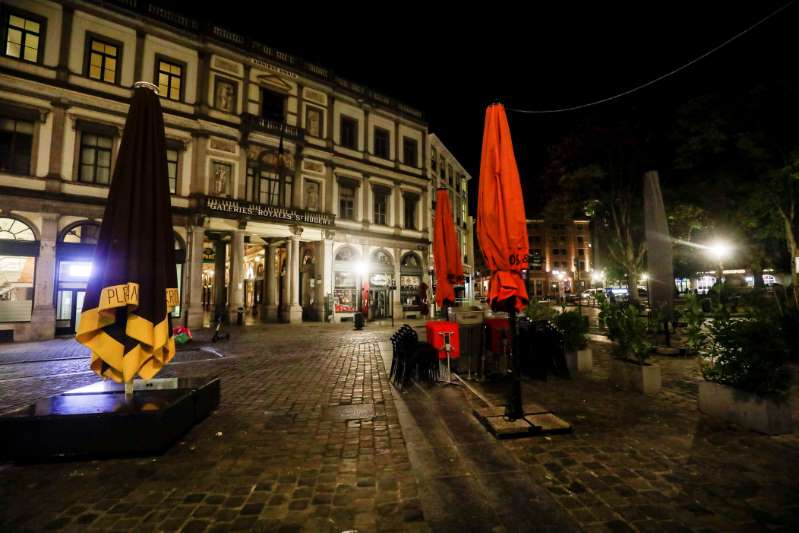The pressure to lift the curfew in Belgium is increasing as a growing number of politicians - both Flemish and Francophone - have spoken out against the extension of the measure.
As the relaxations announced by the Consultative Committee on Friday did not include the curfew, the Flemish rightwing N-VA party submitted a bill to abolish the measure, calling it "too drastic."
Amid the growing criticism of the measure, Flemish Christian-democrat CD&V party leader Joachim Coens launched an appeal not to turn the decision on whether or not to abolish the measure into a "political game."
"There is a pandemic going on. Then you have to take a set of measures," he said on Flemish radio on Monday morning. "You cannot just take one out."
He stressed that the Flemish and the federal government agreed on the measures, and stated that it is "unbelievable that they are now going to play as if it were Flanders against Belgium."
Coens did call the curfew in the Brussels-Capital Region - in force from 10:00 PM to 6:00 AM, instead of between midnight and 5:00 AM like in Flanders and Wallonia - "problematic," saying that the coordination with the other Regions should be discussed.
Related News
- Curfew is a ‘serious infringement of our liberty’ says Jambon
- Relaxing outdoor measures not same as larger social bubble, virologists warn
- Rudi Vervoort to discuss Brussels curfew with the region's mayors
However, more than the measure itself, the fact that there was no parliamentary debate about it and its extension is the main issue for Peter De Roover, the leader of the N-VA group.
"If there are good arguments to extend the curfew, we want parliament to be informed," he said on Flemish radio. "However, we notice that such crucial information is not communicated to the people's representation."
According to him, it concerns an "acute emergency intervention" that has degenerated into a long-term measure proclaimed by ministerial decree without debate.
With the bill, De Roover wants to "force the government to justify its policy on this and the MPs to show their colours."
He stressed that the curfew is a federal measure, taken by the Interior Affairs Minister via Ministerial Decree during the Consultative Committee, while the Flemish Region focussed on its own competencies, such as Education.
Flemish Minister-President Jan Jambon, who is on the Committee and also a member of the N-VA party, is not a fan of the curfew either, and called it a "serious infringement of our liberty" on Sunday, but he did approve that it stayed in force during Friday's meeting.
In the meantime, Federal Health Minister Frank Vandenbroucke and Justice Minister Vincent Van Quickenborne already hinted that the curfew could also remain in place after 1 May, when the authorities hope to reopen the country's bars and restaurants.
Evaluation before April
On Saturday, the leader of the Francophone liberal MR party Georges-Louis Bouchez already advocated a lifting of the measure when bars and restaurants are – tentatively for now – allowed to re-open.
“It seems reasonable to us to lift the curfew in April,” he said. “Because it is a complete restriction on our freedom. By the day the hospitality industry opens, we think the curfew should disappear.”
Bouchez' Dutch-speaking counterpart, leader of the Flemish liberal Open VLD party Egbert Lachaert - who already raised the issue in mid-February - wants to evaluate the measure at the end of this month, as does Interior Minister Annelies Verlinden.
"However, we do not want parties everywhere in May, when the majority of the population has not yet been vaccinated. That will set us back," Lachaert told VRT, adding that a ban on gatherings or a fixed closing time could replace the curfew.
On Monday morning, Coens stressed that the package of measures - including the curfew - was approved at the Consultative Committee on Friday, "with nice and less nice things" and that everything would be reviewed again on 26 March.
"Nobody wants to keep the curfew longer than necessary, and the same goes for the closure of the hospitality industry," he said. "But we must look at the evolution of the figures. For example, it is not because the hospitality industry is opening again that the curfew must necessarily be lifted. It is about a set of measures."
Maïthé Chini
The Brussels Times

